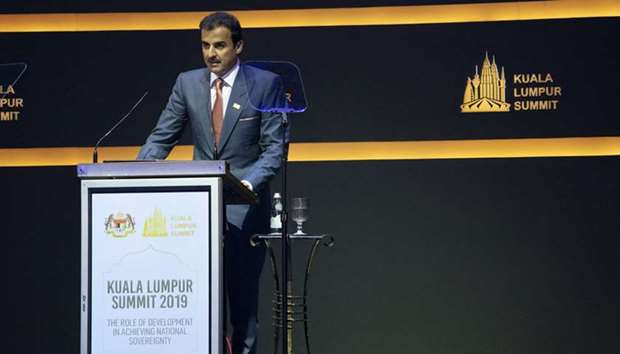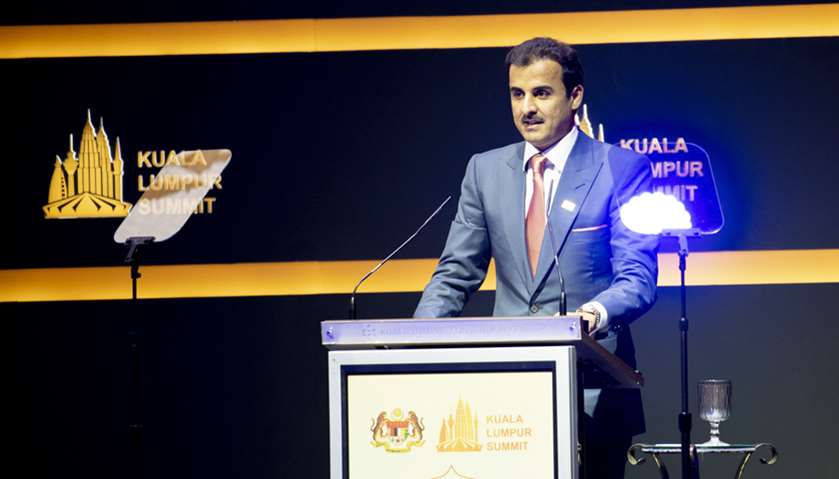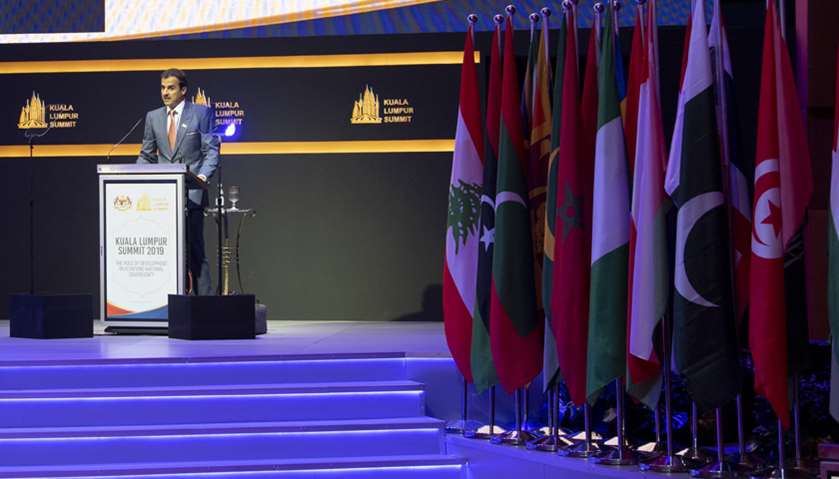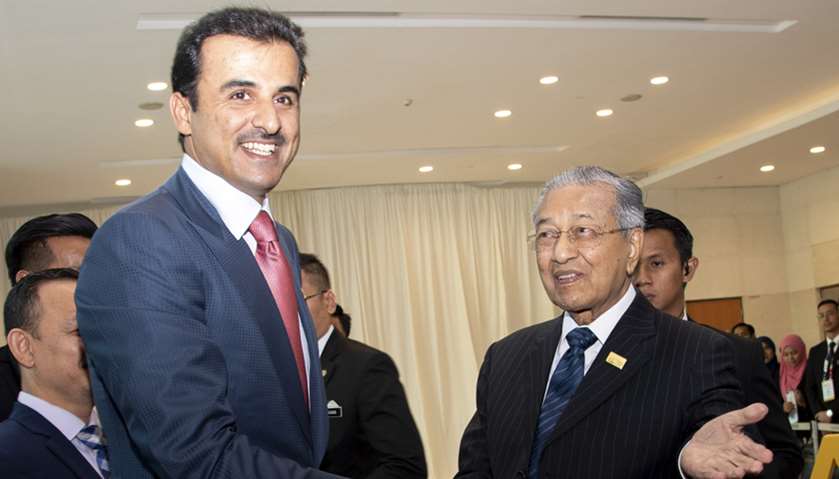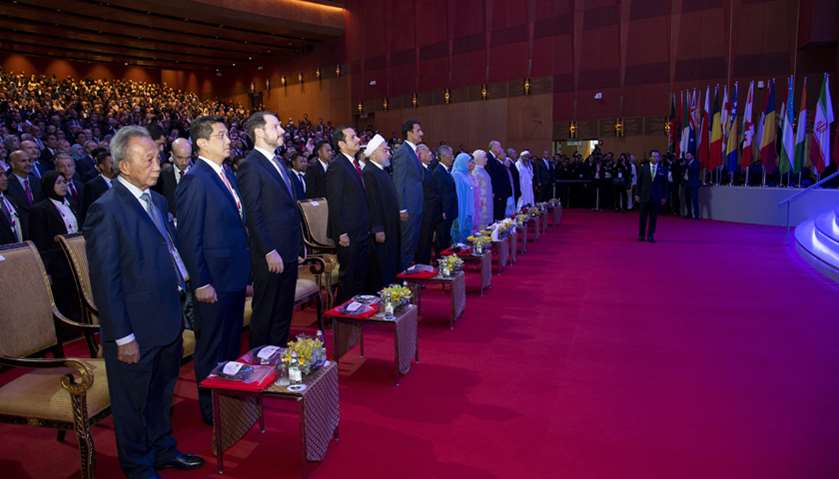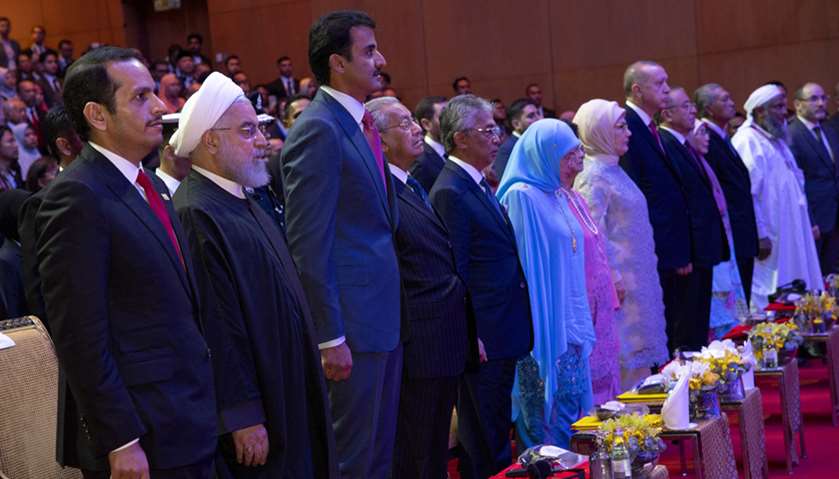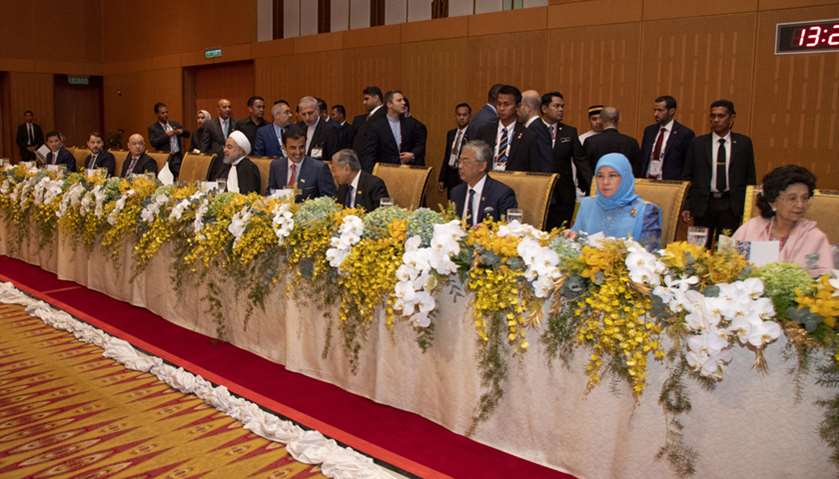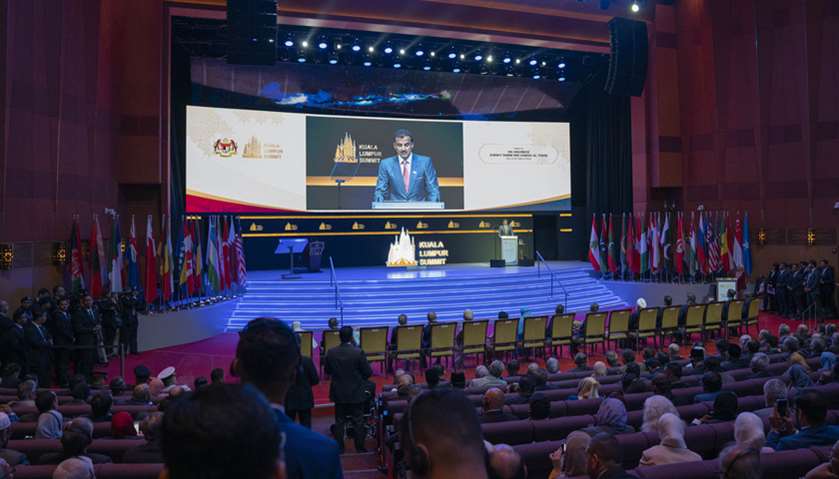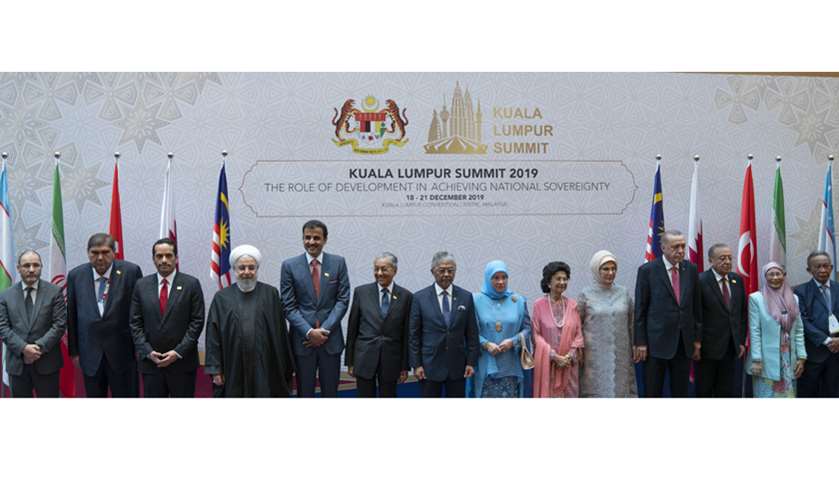* 'Qatar has placed development on top of its priorities'
Development is an essential pillar of independence and national sovereignty, His Highness the Amir Sheikh Tamim bin Hamad al-Thani told the opening session of the Kuala Lumpur Summit 2019 on Thursday.
Malaysian King Abdullah Riayatuddin al-Mustafa Billah Shah, Turkish President Recep Tayyip Erdogan, Iranian President Dr Hassan Rouhani, and Malaysian Prime Minister Dr Mahathir Mohamed participated in the Summit.
The two-day Summit with the theme ‘The Role of Development in Achieving National Sovereignty’ will focus on seven main topics. They are national development and sovereignty, integrity and good governance, culture and identity, justice and freedom, peace, security and defence, trade and investment, as well as technology and Internet governance.
In his address, His Highness the Amir stressed that national development, especially the one that takes human development into consideration, is not possible without national sovereignty.
“On the other hand, it is almost impossible to maintain national sovereignty and independence of decision in conditions of economic backwardness and dependency.
“The Summit theme reflects the great challenges facing the world in general, and the Muslim world in particular, with regard to issues of security, peace, development, good governance and human rights.
“Countries, where there is a Muslim majority, have proved by experience and practices that there is no contradiction between Islamic culture, development, good governance and human rights, and that, like other major civilisations, they can be incubators of enlightened and rational systems of governance; meanwhile other regimes justify underdevelopment, tyranny, and treading on human rights on the grounds of the Islamic culture of their peoples, although such justification in itself is incompatible with the spirit of Islamic civilisation.
“We are not fundamentally different from other peoples and civilisations in the world. The approach that categorises people into ranks according to their religions reflects a racist thinking which is not different from the thought that branded them into grades in the past according to their ethnicities.
“We treasure our civilisation and religion within the framework of our adherence to our humanity and universal values, and there is no contradiction between the two issues,” Sheikh Tamim said.
His Highness the Amir pointed out that Qatar has placed development on top of its priorities by means of the National Development Strategy 2012/2017 and the Second Development Strategy 2018/2022 to achieve its National Vision 2030.
“In our development policy, we consider that our trust in the national identity and adherence to our moral values and our true Islamic faith is consistent with rationality in social and economic planning, openness to the world, and the universal human view of justice and human rights issues.
“Also this means tolerance of other beliefs and accepting pluralism and diversity in our world as a reflection of Gods enduring laws that govern His creation. In any case, we see fanaticism as not only an evidence of lack of self-confidence but rather a proof of an identity crisis.
“The violent bigotry that some people try to attach to a particular religion and culture is, as the sequence of events in the modern time shows, a global problem that has not spared a society or culture from its affliction. It is a blight that may afflict all and is fuelled by religious fanaticism, as well as non-religious ideology, despair, frustration, conditions of ignorance, poverty and unemployment. Therefore, its long-term confrontation must include addressing its roots.
“We call for the endorsement of methods of negotiation and dialogue for resolving lingering issues, and we reject the use of methods of force, blockade, starvation and dictation of opinions. Adopting this approach requires a minimum of unanimity in granting greater power to international institutions where the right of veto does not prevail in favour of this or that country.
“Incitement against Islam and Muslims has recently become a populist tool for gaining votes. These are short-sighted internal party politics, yet it would make the relations with other peoples subject to irrational policies and whims in domestic politics, which negatively affects relations between States.
“Just as we demand from communities in Western and other countries to deal with Islam and Muslims in accordance with the principles of democracy and human rights that they adhere to, and to criminalise racial abetting against Muslims as well, we should also expect Muslim States as well as Muslim and non-Muslim societies in the East to deal with their citizens and residents equally, regardless of race, religion and doctrines, and respect their religions and exclusivity. We must also consider citizenship and equality before the law as regulators of the interaction between the individual and the State, regardless of race, religion, gender, or origin in Muslim countries as well.
“In short, justice is indivisible. We demand justice and good governance within States, and we look forward to justice and good governance in international relations,” Sheikh Tamim added.
His Highness the Amir participated in the closed session of the Kuala Lumpur Summit 2019, met with the Iranian President on the sidelines of the Summit and attended a luncheon banquet held by the Malaysian King.

